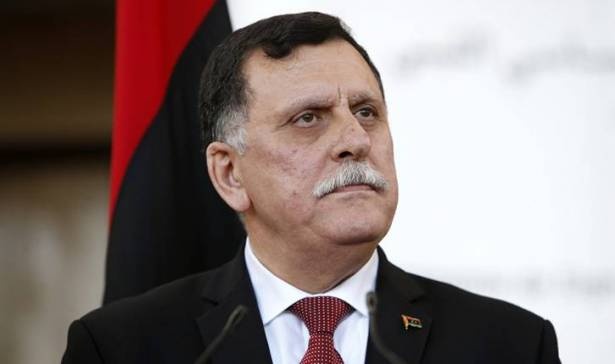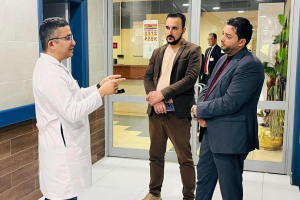Khalifa Haftar has skipped a very precious chance that could establish for a solution to the Libyan political crisis and end the suffering of the Libyan people, said the Head of the UN-proposed government’s Presidential Council, Fayez Al-Sirraj.
Al-Sirraj indicated, in a statement issued Wednesday regarding his visit to Egypt’s Cairo to meet Khalifa Haftar and the Speaker of the House of Representatives (HoR) Aqilah Saleh to find a solution to the Libyan political juncture, that Egyptian officials said Haftar will meet him on the second day of his visit.
"But on the second day, they said Haftar refused to meet him, giving no excuses." The statement adds.
“This kind of conduct shows the political inflexibility and the individual visions that the other party has and that led to blocking any realistic solution to end the current political impasse.” Al-Sirraj said, adding that they will continue to look for an end to this crisis despite the failure of the meeting based on the belief in national constants and Libya’s sovereignty as well as to avoid shedding any more blood, not to mention the deteriorated humanitarian situation in Libya.
The PC member, Mohamed Al-Emari, disavowed the visit of Al-Sirraj to Egypt to meet Haftar, slamming it as individualistic and only represents Al-Sirraj as it doesn’t manifest the PC’s principles of consensus, on which it was based when formed, warning of the growing power of individualism at the PC.
In a statement, Al-Emari welcomed any Arab or international mediation to find a solution to Libya’s crisis, rejecting to see the mediators biased to a certain party in the talks, pointing out that he refuses undermining the political agreement and sizing it fittingly into the mold of personal gains.
“The amendment of the political agreement must be according to the laws of the agreement itself.” Al-Emari elaborated.
Al-Sirraj returned to Libya after failing to meet with Haftar or Aqilah Saleh, who both rejected having a meeting with him and listening to his initiative that aims at ending the Libyan crisis.








